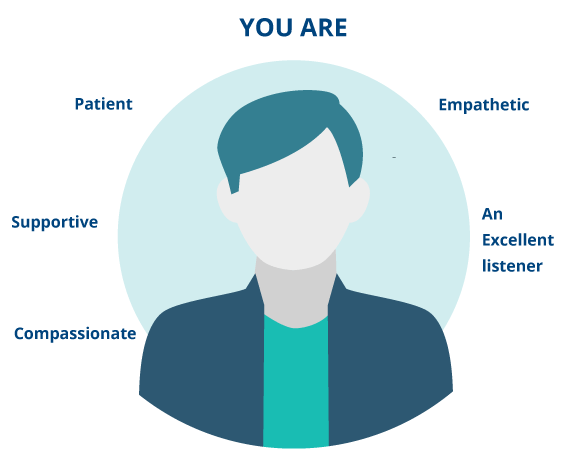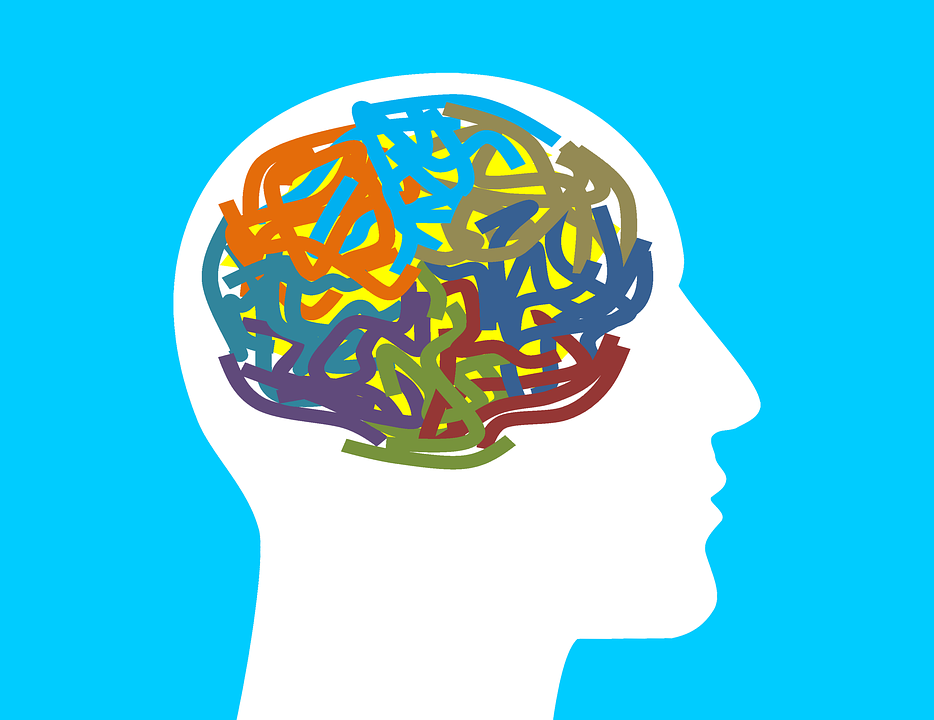The Relevance of Mental Health And Wellness: a Deep Study Counseling, Treatment, and Their Benefits
Mental health significantly shapes individual wellness, impacting ideas, feelings, and actions. Therapy and treatment function as essential opportunities for recovery and individual development. They use structured assistance, aiding individuals browse life's obstacles. Yet, many continue to be unaware of the details sorts of treatment offered and their one-of-a-kind advantages. Recognizing these aspects is vital for anyone taking into consideration professional psychological wellness support. What complies with may brighten paths to strength and fulfillment that lots of neglect.
Understanding Mental Wellness and Its Influence
Although psychological wellness is often neglected, it plays a vital function in general health and day-to-day performance. It incorporates psychological, mental, and social elements that affect just how individuals believe, feel, and act. A person's psychological health and wellness straight affects their capability to deal with stress and anxiety, connect to others, and choose. Poor mental wellness can bring about various issues, including stress and anxiety, clinical depression, and difficulty in preserving connections, every one of which can prevent personal and expert growth.Furthermore, psychological health has far-ranging ramifications for physical health. Chronic tension and untreated mental problems can contribute to various physical conditions, such as heart disease and weakened immune feedbacks. Conversely, favorable mental health and wellness fosters durability, allowing people to deal with life's challenges efficiently. Comprehending psychological wellness's significance is essential for promoting encouraging environments that advertise psychological wellness, thus improving the lifestyle for people and areas alike
The Various Types of Therapy and Therapy
In the domain of psychological wellness, different counseling and treatment kinds provide to varied requirements. Specific counseling approaches concentrate on personal issues through one-on-one sessions, while group treatment characteristics foster shared experiences and assistance among individuals. Recognizing these methods is necessary for picking the suitable treatment for different difficulties.
Private Counseling Strategies
Numerous specific counseling methods exist, each made to address specific psychological health and wellness worries and cater to differing client demands. Cognitive Behavior Modification (CBT) focuses on identifying and changing unfavorable thought patterns, while Psychodynamic Therapy discovers previous experiences and subconscious procedures. Humanistic Therapy stresses individual development and self-actualization, cultivating a helpful atmosphere. Social Therapy (IPT) targets connection issues and interaction patterns to improve emotional well-being. In addition, Acceptance and Dedication Treatment (ACT) urges customers to approve their thoughts and feelings while dedicating to personal worths. Each method offers one-of-a-kind strategies and philosophies, allowing specialists to customize their approaches to the individual, therefore boosting the therapeutic experience and advertising mental wellness recuperation.
Group Treatment Characteristics
Group treatment characteristics include various healing methods that take advantage of the power of common experiences and interpersonal partnerships. This type of treatment typically includes diverse groups, fostering a risk-free setting for participants to express sensations and thoughts. Trick kinds of group treatment include support system, which provide psychological assistance; process-oriented teams, concentrating on interpersonal communications; and psychoeducational teams, intended at presenting expertise about mental health problems. The dynamics within these groups can boost self-awareness, as members often assess their habits in relationship to others. Furthermore, group therapy cultivates a sense of belonging, minimizing feelings of isolation. Via shared narratives and collective problem-solving, individuals can establish coping strategies and get insights, eventually adding to private growth and recovery.
The Role of Counseling in Mental Health And Wellness
Therapy plays a necessary function in mental health and wellness by using different methods tailored to private requirements. These approaches offer professional assistance that can bring about substantial renovations in psychological well-being. Understanding the various sorts of therapy can help individuals make educated choices regarding their psychological healthcare.

Kinds of Counseling Methods
While numerous counseling techniques exist, each deals unique approaches and insights right into psychological wellness therapy - Mental Health Resources. Amongst the most popular are cognitive-behavioral treatment (CBT), which concentrates on changing adverse idea patterns; psychodynamic therapy, which explores subconscious procedures and youth experiences; and humanistic methods, emphasizing individual development and self-actualization. Furthermore, solution-focused quick therapy focuses on finding services in today as opposed to diving right into troubles. Team treatment fosters community and shared experiences, while family treatment addresses relational dynamics within familial frameworks. Each method deals with various demands, lining up with private choices, concerns, and healing goals. Recognizing these approaches assists clients make notified choices about their psychological health and wellness trip and promotes reliable therapy tailored to their one-of-a-kind conditions
Advantages of Specialist Advice
Numerous individuals benefit from specialist advice in managing their mental health and wellness difficulties. Therapy supplies a safe room for clients to discover their thoughts and sensations without judgment. This restorative environment cultivates self-awareness, allowing individuals to identify patterns in their behavior and develop much healthier coping strategies. Professional assistance likewise provides accessibility to evidence-based techniques that can alleviate signs of anxiety, depression, and various other psychological health issues. Additionally, therapists can aid in setting reasonable goals and provide support in achieving them, improving overall health. The collective connection between counselor and client is crucial, as it promotes responsibility and motivates personal growth. Ultimately, specialist guidance plays a vital role in guiding psychological health journeys, causing improved psychological durability and life fulfillment.
Advantages of Treatment: Recovery and Development

Just how to Select the Right Specialist or Counselor
Exactly how can one browse the frequently overwhelming process of selecting the best therapist or counselor? Determining personal demands is important; people ought to consider their particular problems, whether depression, stress and anxiety, or relationship obstacles. It is beneficial to research various healing techniques, such as cognitive-behavioral therapy or psychodynamic treatment, to find a suitable match.Next, possible clients ought to seek references from relied on sources or utilize online directory sites. It is important to review therapists' qualifications, including their education, licensing, and areas of specialization. Scheduling initial consultations can help assess compatibility, enabling individuals to evaluate interaction styles and personal comfort.Finally, logistical factors, such as area, availability, and fees, must additionally be taken into consideration. By attentively considering these aspects, one can make an educated decision, ultimately promoting a therapeutic partnership that supports mental wellness and individual growth.
Conquering Stigma: Embracing Mental Health Support
While social mindsets toward psychological health and wellness have actually advanced, stigma still presents a considerable barrier for several looking for support. This preconception frequently materializes as misunderstandings bordering mental disorder, leading individuals to really feel pity or anxiety regarding their struggles. Lots of people hesitate to go after therapy or treatment because of bother with being evaluated or identified. Conquering this stigma is basic for fostering a supportive environment where individuals can honestly discuss their mental health needs.Communities and companies play a vital function in this improvement by advertising awareness and education concerning mental health issues. Campaigns that highlight personal stories can humanize these experiences, encouraging others to seek help without concern. As acceptance grows, people may feel more encouraged to accept psychological health and wellness assistance, identifying it as a crucial element of general wellness. By taking down stigma, culture can cultivate a culture of understanding, compassion, and proactive psychological health care.
Approaches for Maintaining Mental Health Beyond Therapy
Treatment gives beneficial assistance, preserving psychological wellness outside of sessions is important link similarly important. Individuals can carry out numerous strategies to sustain their psychological wellness. Normal exercise plays a vital duty, as workout promotes the launch of endorphins, which enhance mood. Additionally, a well balanced diet regimen rich in nutrients can substantially affect psychological security and energy levels.Practicing mindfulness and reflection aids individuals take care of anxiety and establish better self-awareness. Establishing a regular rest routine is additionally basic, as quality remainder is critical for cognitive function and psychological regulation.Engaging in social activities fosters link and lowers sensations of seclusion. Pursuing rate of interests or pastimes can give an innovative electrical outlet and boost self-worth. Ultimately, practicing and establishing sensible objectives self-compassion allows individuals to grow durability. By integrating these methods right into daily life, individuals can successfully support their psychological well-being past treatment sessions.
Regularly Asked Questions

How Can I Inform if I Need Therapy?

Determining the demand for treatment often entails acknowledging persistent sensations of sadness, anxiousness, or overwhelming anxiety. If daily operating comes to be tough or coping systems fail, looking for expert assistance might be a beneficial advance.
What Should I Expect in My Very First Therapy Session?
In the very first therapy session, individuals can expect an intro, conversation of their reasons for seeking help, and a summary of the specialist's method, developing a structure for future discussions and developing comfort in the therapeutic space.
Are Online Treatment Sessions as Effective as In-Person Ones?
Research study suggests that online treatment sessions can be as efficient as in-person ones. Elements such as the therapist's qualifications, client involvement, and the healing connection greatly affect end results, no matter the tool utilized.
Can Treatment Assist With Partnership Concerns?
Therapy can assist individuals in addressing relationship problems by providing devices for interaction, understanding feelings, and fixing disputes. Mental Health Resources. It promotes much healthier dynamics and urges individual development, eventually promoting more powerful, much more satisfying links between companions
Exactly How Long Does Therapy Typically Last?
Therapy period varies significantly based upon specific demands and goals. Normally, sessions might last from a few weeks to numerous months, with some people involving in recurring treatment to resolve long-lasting concerns and personal growth. Cognitive Behavior Therapy Discover More (CBT) focuses on recognizing and transforming unfavorable idea patterns, while Psychodynamic Therapy explores unconscious procedures and past experiences. Key kinds of team treatment include assistance groups, which supply psychological assistance; process-oriented groups, focusing on social interactions; and psychoeducational groups, intended at passing on understanding about psychological wellness problems. Amongst the most prominent are cognitive-behavioral treatment (CBT), which focuses on altering unfavorable thought patterns; psychodynamic treatment, which checks out unconscious processes and childhood experiences; and humanistic techniques, highlighting individual growth and self-actualization. Group therapy cultivates area and shared experiences, while household therapy addresses relational characteristics within familial frameworks. It is useful to research study numerous healing methods, such as cognitive-behavioral treatment or psychodynamic treatment, to discover a suitable match.Next, potential clients must look for references from trusted resources or make use of on the internet directories.